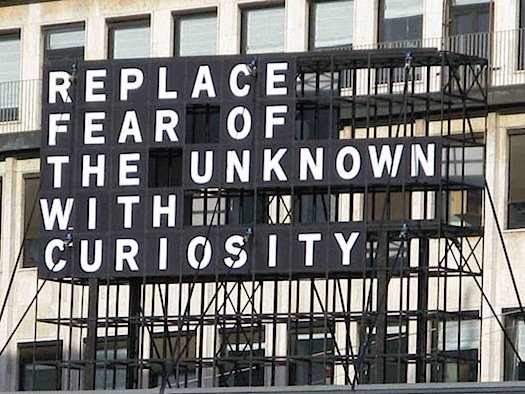Nourhan Elsayed — ‘Topless Jihad’: Fighting Oppression with Oppression?
by NOURHAN ELSAYED for ISLAMiCommentary on JUNE 12, 2013:

I did a double-take when I saw the words “Topless Jihad” in a news headline earlier this Spring. My first thought was “editorial mistake?” The story that followed made me wish the headline was an error.
This past April, Femen – a Ukrainian based feminist group whose movement has spread across Europe and some of the Middle East since its founding in 2008 – set out to support one of their own. Amina Sboui nee Tyler, a Tunisian activist and Femen supporter, posted topless photos of herself on Femen’s Tunisian Facebook page. Inscribed across her bare chest was the slogan “Fuck Your Morals” (in English), and “My Body Belongs to Me, and Is Not the Source Of Anyone’s Honor” was painted in Arabic on her body. The Facebook page was subsequently hacked, and there were calls for her stoning.
The women of Femen responded by staging international protests at Tunisian embassies on April 4. They called their efforts “International Topless Jihad Day.”
Femen has claimed their efforts were to support Amina and “oppressed” Muslim women, but their claims were not reflected in their actions. Their protests were based on faulty assumptions, and they were counterproductive. Femen’s protests “in the name of liberation” were in actuality oppressive.
There would not have been an issue if Femen’s protests were simply to support Amina’s right to do with her body as she pleases. Hell, I believe Femen was warranted in protesting against the people who claimed that Amina should have been punished for posting topless photos. But with Femen’s “support” came their denigration of Islam.
How is naming the protests “Topless Jihad Day” and mocking Islam by wearing fake beards, writing anti-Islamic statements across their chests, and drawing crescents on their bodies, taking a stand for women’s rights?
Statements such as “Fuck Islamism,” “No Sharia,” and “No Islamism,” were mixed in with “freedom for all women.” The message here — that Islam is a oppressive religion that needs to be fought in a drastic manner.
Chief among Femen’s claims are that religious leaders are predominantly responsible for mistreating women, and being forced to cover up is part of this mistreatment.
Femen leader Inna Shevchenko wrote in a commentary for CNN: “At the heart of Islamism lies the enslavement of women based on control over their sexuality. The hijab is at the same time both a symbol and a tool of this enslavement.”
In Shevchecnko’s mind, it appears, these topless endeavors imply that all Muslim women are unhappy covering up and that the religion of Islam is to blame. But Femen has directly attacked Islam, and as a result offended many Muslim women.
Feminism and liberty are subjective terms.
If Femen wants to help Muslim women they might first try to understand what these women are concerned about. For many Muslim women, the religion of Islam and covering up is not the problem. Many Muslim women who cover in accordance with Islam, do not feel the coverings restrict their freedom.
Many feminist groups in the Middle East, including the Tunisian Association of Liberty and Equality, and Iraq’s Center for Women’s Rehabilitation and Employment argue that Femen’s topless demonstrations are counterproductive to promoting women’s rights.
They, like I, supported Amina’s right to express her self but agreed that the method of protesting that Femen chose was disrespectful and will not result in any progress for Muslim women.
And yet Femen’s ethos suggests that Muslim Women need the West, and the women of Femen to save them. Femen, in effect, subjugates Muslim women by assuming that they need saving.
In response to Femen’s actions in April, Muslim women around the world demonstrated that if they “needed saving” they would do it themselves. They channeled their outrage into action, creating a Muslim Women against Femen Facebook page.
One post read, “Shame on you Femen, Hijab is my right.” Each post read something unique, but they all boil down to the same point, that covering up is not oppressive and that they, as Muslim women, do not need saving. As of this month the site has more than 11,000 “likes.”
Despite the outcry against Femen from Muslim women themselves, Femen continues to stir controversy in the Middle East. In mid-May, Tyler was arrested again after scrawling “Femen” on the wall of a mosque and attempting to take her clothes off during a protest in a provincial town. She was arrested and charged with carrying a dangerous object (apparently pepper spray). On the day of her trial, three women (two from France and one from Germany) were arrested for protesting topless outside the central Tunisian courthouse where Tyler’s case was being heard. Yesterday they were handed four-month-and-one-day jail sentences by a Tunisian court “for an attack on public morals and decency.”
Femen has not been hugely active in the Middle East. And yet, Femen remains insistent on imposing their ideals on the region.
Femen leader Inna Shevchenko, in that commentary for CNN, vowed:
“I hereby both promise and threaten to deploy an entire network of Femen activists in Arab countries.”
“We will hound Islamic leaders across the globe, subjecting them to desolating criticism. We intend to hound spiritual leaders who are personally responsible for mistreating women.”
Besides a chapter in Germany and a chapter in France, it is not clear there are any other official chapters of Femen outside the Ukraine, though there are supporters with Femen Facebook fan pages, including in the Middle East.
As an American Muslim woman who wears hijab and considers herself liberated by the hijab, I am more than offended by Femen’s actions. My hijab has never been a source of oppression, nor has my religion, and for Femen to assume the right to make a statement on behalf of me and other Muslim women, is simply unacceptable.
Femen has profited from media attention by staging racy unwarranted protests, but the protests do not support or liberate anyone.
Femen’s and other groups’ faulty assumptions about Muslim women who cover up — that they are either oppressed or fundamentalists — make clear the need for the wider public to be better informed about the practices of other cultures and religions.
The next time women decide to go topless in the name of feminism; it would be nice if their actions were justified. Until then, the women of Femen should keep their minds open — and their shirts on.
Nourhan Elsayed is a rising sophomore at Duke University and a columnist (“a world unveiled”) at The Chronicle, Duke’s undergraduate newspaper. “Silence is complicity” is her latest column.
– See more at: http://islamicommentary.org/2013/06/nourhan-elsayed-topless-jihad-fighting-oppression-with-oppression/#sthash.xpRNfJKk.dpuf




France’s President, François Hollande, just announced today that the Ukrainian born leader of Femen, Inna Shevchenko, who has received asylum in France, is the inspiration for France’s latest incarnation of Marianne, the symbol of the French Republic since the 1789 Revolution. Read more about it, as reported by The Atlantic here: http://www.theatlantic.com/international/archive/2013/07/france-puts-femens-face-on-its-stamps/277835/